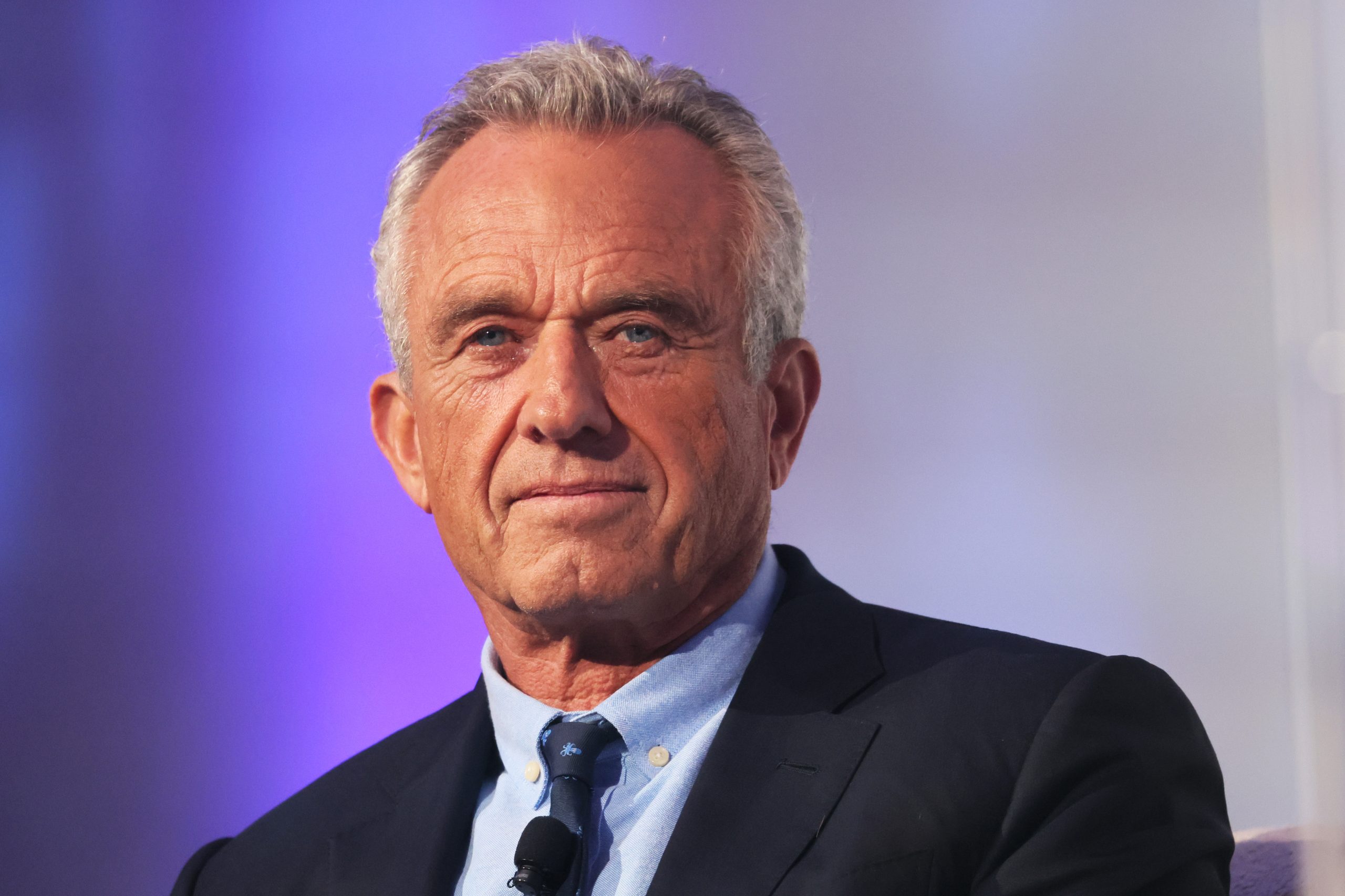Robert F. Kennedy Jr. Defends Cheryl Hines Against Bradley Whitford’s Criticism Following Trump Endorsement
Robert F. Kennedy Jr., fresh from concluding his independent presidential campaign, has recently come under intense scrutiny, not just for his political decisions, but also for his personal life, particularly concerning his wife, actress Cheryl Hines. The situation escalated when actor Bradley Whitford criticized Hines for standing by her husband’s controversial endorsement of former President Donald Trump. Kennedy, in a spirited defense of his wife, labeled Whitford’s remarks as a form of bullying, underscoring the complexities of political alliances and the personal toll they can take on families.

The Political Journey of Robert F. Kennedy Jr.
Kennedy’s Presidential Bid and Challenges
Robert F. Kennedy Jr.’s presidential campaign faced numerous hurdles from the start. As an independent candidate, he struggled to secure a place on the ballot in all 50 states, a challenge that highlighted the difficulties of running outside the established party systems. Despite efforts from his team to gather the necessary signatures, the lack of widespread support ultimately led to the suspension of his campaign shortly after the Democratic National Convention.
The Decision to Endorse Donald Trump
After ending his campaign, Kennedy made the unexpected decision to endorse Donald Trump, a move that shocked many of his supporters. This decision was particularly surprising given Kennedy’s previous criticisms of Trump, where he had labeled the former president as “a threat to democracy” and accused him of appealing to bigotry and prejudice. The endorsement quickly became a point of contention, drawing backlash from various quarters, including from within Hollywood.
Bradley Whitford’s Criticism and Cheryl Hines’ Silence
The Social Media Backlash
Bradley Whitford, known for his role in “The West Wing,” took to social media to express his disapproval of Kennedy’s endorsement of Trump. In a pointed post on X (formerly Twitter), Whitford chastised Hines for remaining silent as her husband aligned himself with Trump. Whitford’s comments were harsh, accusing Hines of tacitly supporting a candidate who, in his view, had stripped women of their fundamental rights.
Kennedy’s Response to Whitford’s Remarks
In an interview with TMZ, Kennedy responded to Whitford’s criticism, defending his wife against what he described as bullying. Kennedy emphasized that Hines is not a supporter of Trump and that her involvement was driven by compassion rather than political endorsement. He expressed frustration that Whitford chose to target Hines instead of addressing him directly, questioning the integrity of such an approach.
Cheryl Hines’ Position and the Emotional Toll
Hines’ Role in the Trump-Kennedy Meeting
Kennedy revealed that Hines had played a crucial role in facilitating a meeting between him and Trump, following a particularly emotional rally in Pennsylvania. Hines, who is widely recognized for her role in “Curb Your Enthusiasm,” encouraged the meeting out of sympathy for the nation’s polarized state. According to Kennedy, Hines’ actions were driven by a sense of compassion during a turbulent time, rather than political agreement.
The Impact on Hines as a Lifelong Democrat
Hines, a lifelong Democrat, has found herself in an uncomfortable position due to her husband’s recent political moves. Kennedy acknowledged that his endorsement of Trump was something Hines never anticipated or wanted. The situation has reportedly caused significant discomfort for Hines, who is navigating the complex dynamics of supporting her husband while maintaining her own political identity.
The Evolution of Kennedy’s Political Views
From Critic to Supporter: Kennedy’s Shift
Kennedy’s endorsement of Trump marks a significant shift in his political views, especially considering his past criticisms. In previous statements, Kennedy had described Trump as a divisive figure who posed a threat to democratic values. However, in his recent interview, Kennedy spoke about an “evolution” in his views, suggesting that his perspective on Trump and his policies had changed over time.
The Reaction to Kennedy’s Endorsement
Despite the dramatic shift in his stance, Kennedy’s endorsement of Trump does not appear to have significantly influenced public opinion. According to a recent poll by Yahoo News/YouGov, Vice President Kamala Harris continues to lead Trump in a hypothetical matchup, indicating that Kennedy’s support has not swayed a large number of voters. This suggests that while Kennedy’s endorsement may have garnered media attention, its impact on the broader political landscape remains limited.
The Broader Implications of Political Endorsements
The Personal Cost of Political Decisions
Kennedy’s situation highlights the personal cost that political decisions can have on individuals and their families. For Hines, her husband’s political alignment has brought her under public scrutiny, illustrating the challenges faced by those who are connected to high-profile political figures. The backlash from Whitford and others underscores how political endorsements can lead to personal attacks, even against those who are not directly involved in the decision-making process.
The Role of Compassion in Politics
Hines’ encouragement of the meeting between Kennedy and Trump, driven by compassion rather than political agreement, raises important questions about the role of empathy in politics. In a highly polarized environment, where political decisions are often viewed through a binary lens, actions motivated by compassion can be easily misunderstood or misrepresented. Hines’ experience serves as a reminder that political decisions are often complex and multifaceted, involving personal, emotional, and ethical considerations.




